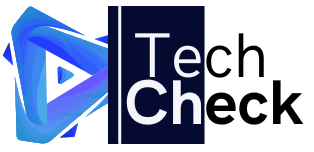Big Tech is facing the music, and it's a symphony of antitrust investigations! The recent regulatory scrutiny of tech giants has sent shockwaves through the industry, leaving many wondering: what happens next? Are these investigations a mere speed bump, or a full-blown roadblock to the unchecked growth of these powerful companies? In this in-depth exploration, we'll dive into the complexities of antitrust violations, the specific allegations against prominent tech companies, and the potential implications for the future of the digital landscape. Buckle up, because this is one wild ride!
Understanding Antitrust Violations: A Primer
Antitrust laws are designed to prevent monopolies and promote competition. These regulations exist to ensure a level playing field where businesses compete fairly, preventing any single entity from dominating and stifling innovation. When companies engage in anti-competitive behavior, like price-fixing or monopolization, they run afoul of these laws, often leading to hefty fines and major restructuring. This is particularly critical in the tech industry, where network effects can create incredibly powerful and entrenched market positions. Antitrust investigations can include a wide array of tactics to investigate any number of suspicious practices, including examining internal documents, interrogating executives, and interviewing customers and competitors. The goal is to determine whether companies have used their market power to harm consumers or competitors. Understanding how these laws apply in the ever-evolving digital world is crucial, as these legal battles often shape the future of technology and innovation. These laws, however, vary from country to country, adding additional layers of complexity and differing penalties for the same actions.
Types of Antitrust Violations
There's more than one way to violate antitrust laws. Common examples include price-fixing (colluding with competitors to set prices), bid-rigging (coordinating bids to inflate costs), and monopolization (using market dominance to exclude competitors). In the tech world, however, violations can take subtler forms, such as leveraging data dominance to stifle startups, enforcing anti-competitive practices that make it hard for other competitors to access vital markets, or using predatory pricing and other unfair business tactics to crush emerging rivals.
The Impact on Innovation
The implications of antitrust violations extend far beyond the fines and penalties imposed on offending companies. When competition is stifled, innovation slows down. Monopolies are less incentivized to improve their products or services since there is little threat of losing customers. This lack of competition can lead to stagnant markets, higher prices for consumers, and fewer choices. The long-term impact on technological advancement can be quite profound, especially in rapidly growing sectors like artificial intelligence and the metaverse.
Tech Giants Under the Microscope
Several tech giants have recently faced intense antitrust scrutiny. These investigations often involve allegations of anti-competitive practices such as stifling competition, leveraging data advantages, and engaging in predatory pricing behaviors. The outcomes of these investigations will have far-reaching consequences, not only for the companies involved but for the entire tech ecosystem. The regulatory landscape is evolving rapidly, and these cases are setting crucial precedents for the future of technology regulation. Expect this to be a hot topic for years to come.
Case Study 1: Google's Dominance in Search
Google's dominant position in online search has been a major focus of antitrust investigations worldwide. Concerns revolve around whether Google unfairly favors its own products and services in search results, pushing down competitors and making it harder for smaller firms to gain a foothold. The argument focuses on whether this stifles competition and innovation, leaving consumers with fewer choices and less diverse content.
Case Study 2: Apple's App Store Practices
Apple's control over its App Store has drawn scrutiny. Critics argue that Apple's policies, including its 30% commission on app sales, unfairly limit competition and stifle innovation among app developers. The debate centers on whether Apple is leveraging its market power to create an unfair advantage, and whether this hurts consumers in the long run. Expect the antitrust probes into Apple's App Store to continue as the legal challenges and investigations intensify.
The Future of Tech Regulation
The ongoing antitrust investigations of tech giants mark a pivotal moment in the evolution of technology regulation. Governments around the world are grappling with how to address the growing power of these companies while still fostering innovation. This ongoing debate highlights the need for a global approach to antitrust enforcement. A patchwork of national regulations can lead to regulatory arbitrage, where companies exploit differences between jurisdictions to avoid accountability. What are the key challenges for international cooperation in tackling this complex issue? And how will we ensure a future where technological innovation thrives without sacrificing competitive fairness?
International Cooperation and Regulatory Harmonization
The increasing interconnectedness of the global economy necessitates a coordinated approach to antitrust enforcement. International cooperation is key to creating a level playing field and preventing companies from exploiting jurisdictional differences. While the goal of regulatory harmony might seem utopian, increased cooperation would improve efficacy and help to ensure that companies are held to the same standards wherever they operate.
Navigating the Complexities of Data and Algorithms
The role of data and algorithms in antitrust enforcement is a particularly complex area. The use of sophisticated algorithms and vast amounts of user data raises several challenges, including the issue of market definition and assessing market power. The complexities associated with digital markets and algorithms add significant challenges and create a need for innovative approaches to enforcement.
The fight for a fair and competitive tech landscape is far from over. These investigations are not just legal battles; they're a clash of ideas about the future of technology and its role in society. Stay tuned for more updates, and let's continue the conversation in the comments section below!
Take action today! Contact your elected officials and express your concerns about antitrust issues in the tech industry. Let's make sure that fair competition remains a core tenet of our digital world.




